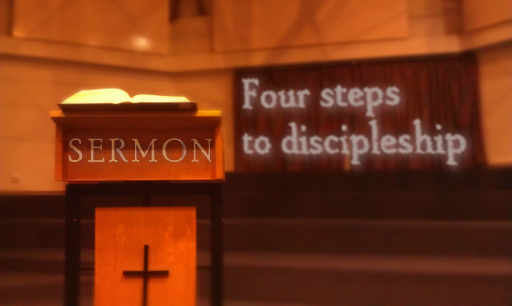Discipleship – being a follower – is central to Christian life. Though the shape that discipleship takes varies, there are some key elements we are all called to: becoming ever more Christ-like. When big decisions come our way, it is right to tackle them as a follower – through prayer and with discernment. This is especially true of discerning our life calling – whether within the ministry or not.

Photo: Miguel Vaca, re-used under CC License
The way I described my response to calling, based on 1 Samuel 3, was this: firstly, hear the call; secondly, discern what the calling is (as Samuel went to Eli), and thirdly, take on the new identity brought on by this call (as Samuel took on the identity of God’s servant). These steps are sometimes muddled up, and the first two occasionally implicit. But a response to a call virtually always includes a commitment.
And here’s where a mistake can be made: to think that it is on that commitment that hinges our call. Or – possibly worse! – that this commitment takes precedence over the calling that it is a response to. This is true both of particular callings to specific action, and to the more universal calling to follow Christ; and it is true both of how we see our own calling and of how we see the calling of others.
When I make the mistake of considering my commitment to my calling first, here’s what happens too:
- I consider my resolve as more important than the one from whom my calling came.
- When my commitment wavers – as it is bound to, from time to time – I have to question my entire sense of calling, and go through the whole discernment process again.
- I don’t know where to draw strength from: my commitment is my own, my responsibility and, in short, my business.
- My actions become goal-oriented, rather than identity-oriented. In short, I am doing this and that in order to reach whatever goal I have committed myself to (e.g., ordination, or getting a specific job, or helping a specific group of people). I have stopped doing this and that because that’s what I should be doing. And that’s a dangerous thing to be doing.
Don’t get me wrong – commitment is necessary. But not at the expense of knowing that it is just a response: a response to the God who equips those whom he calls.
So consider your own calling as a Christian – or your story of how you became a Christian. Does it revolve around the moment you decided to follow, or does it revolve around the ways God called you, and your redeemed identity?
And if you agree that God’s call is far more important than a commitment, then why do we continue to describe evangelistic success primarily as “people giving their lives to Jesus”?

